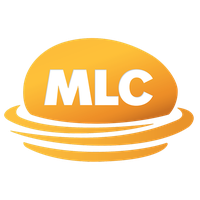In this continued series of articles I’ve been looking at various types of insurance cover and what medical conditions or accidents you should make sure you’re insured for.
To get some real life data informing your decisions I’ve been using statistics from 2021 using AIA Australia, one of this country’s leading insurance companies.
The number one thing that people claim for on their trauma/crisis recovery policies is cancer. For women, 78% of claims were for cancer, including breast cancer. For men the figure was 41%. The youngest claim was for a 4 y/o and the oldest claim was for a 71 y/o. The average claim age was 58, which might seem surprisingly young. In 2020, nearly 150,000 new cases of cancer were diagnosed amongst Australians. Break cancer alone accounts for nearly 20,000 annual new cases and prostate cancer 16,700.
Cardiovascular, was the second highest category of claims, for women coming in at 7% and for men 18%. Heart attack and stroke being the major cardiovascular conditions.
Bottom line, you should consider a policy that fully covers a wide range of cancers but also make sure your insurance companies cancer definitions are up to date and relevant.
If we look at a quick snapshot of just breast cancer stats:
- In 2020, it was estimated that 19,800 women were diagnosed with breast cancer.
- That’s an average of almost 400 people per day.
Following close behind cancer were cardiovascular conditions. The greater proportion of these clients were men, in fact those with heart conditions made up 17% of all crisis recovery claims for men. According to AIA someone in Australia suffers a heart attack every nine minutes. Aside from this being a sad indictment on our diet, exercise, or lack of it, it’s also a sobering reminder to make sure your insurance companies definition of a heart attack fits what might happen to you. I can’t stress this enough, you should consider being covered for the greatest eventuality that might occur. Cardiovascular is also the second highest claim reason for women with over 10% of claims relating to cardiovascular conditions.
So that’s two of the key events that might trigger a crisis recovery claim but what sort of age groups do they happen to? Well AIA’s youngest crisis event claimant was 4 years old and the oldest 71, the average claimant was 51 based on 2021 stats.
Key crisis recovery insurance facts
- Trauma cover/crisis recovery is generally not permitted through superannuation and needs to be taken out as a separate policy outside superannuation. As there is no “default cover” through super, often Australian’s don’t have crisis recovery insurance.
As the cost of living increases, many people look for ways to cut back where they can, including cancelling their life insurance to free up extra cash flow.
While cutting back on this expense may make sense in the short term, it could cause you significant financial hardship in the future, in the event of the unexpected diagnosis or life changing event.
If this article has raised some issues for you contact one of our Spotter Life consultants who will be happy to talk you and provide you with general advice.








